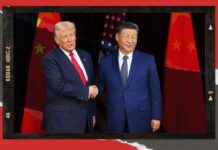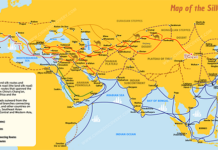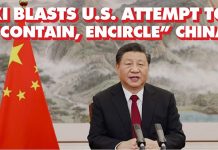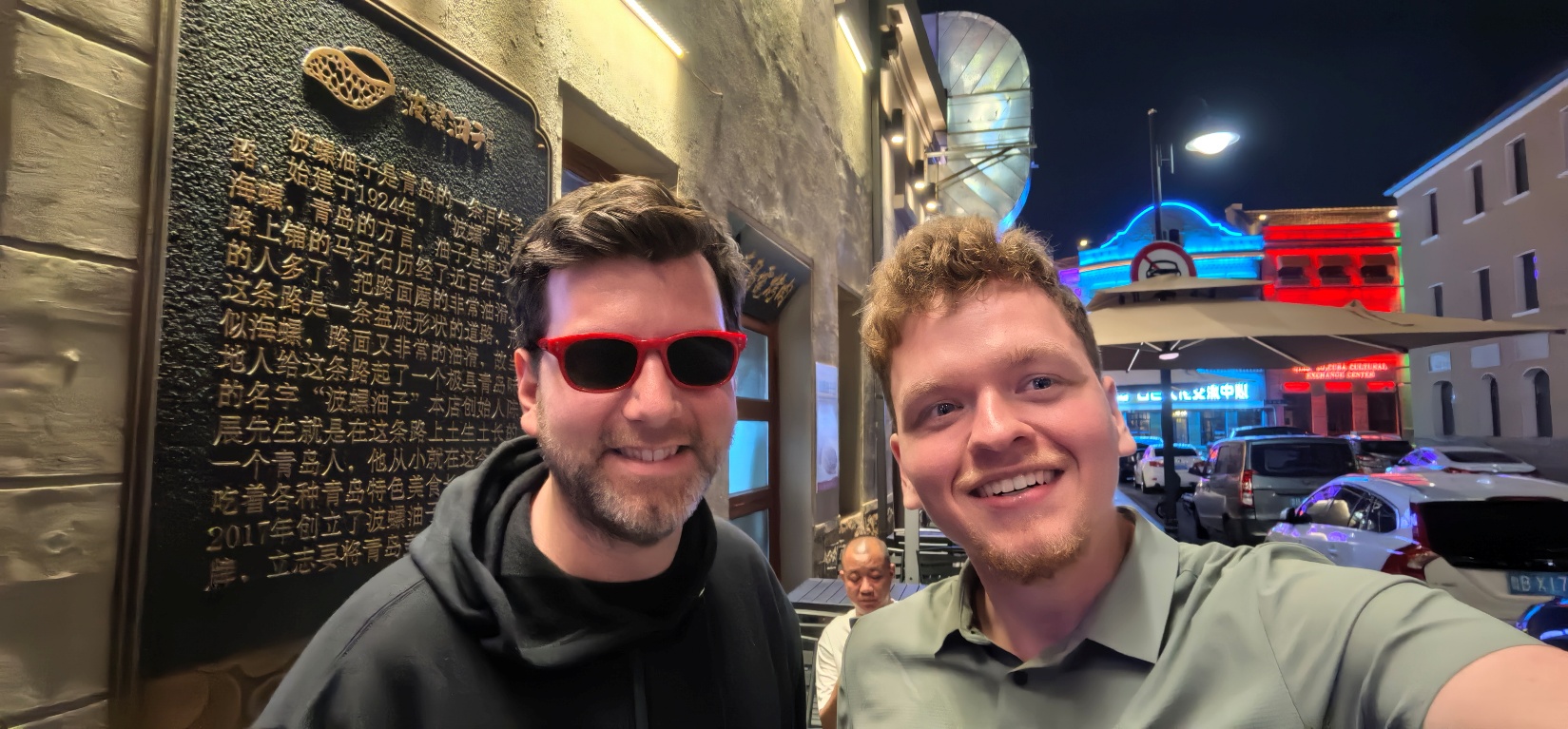
As legislators across North America continue bashing the People’s Republic of China, some Canadians, including this author, were invited on a tour of three Chinese cities during the spring.
During our time in China, we saw beautiful nature and technological innovation in Hangzhou, the peaceful coastline in Qingdao, and a brief peek of the capital city, Beijing, focused on a visit to the Chinese Foreign Affairs ministry.
Our invitation came from the Chinese People’s Institute of Foreign Affairs (CPIFA) and Embassy of the People’s Republic of China in Canada, and saw our group—composed of journalists, artists, activists, business folk, a pastor and more—arrive in late April.
By no means was this tour the hallmark of investigative journalism. We were taken to lovely restaurants to eat, saw corporations and places of a high standard, and stayed in good hotels. The value of the trip was a chance for Canadians to see the good side of the People’s Republic of China (portrayed in the West as a country many people supposedly want to flee), as the country’s leadership and many cadres continue working hard every day to improve the nation. It is up to the Chinese people to control the destiny of their own nation, as they have done since the PRC’s establishment in 1949.
Beijing
Our visit was brief but memorable. For me, the time in Beijing began when I went down the wrong elevator at our hotel and got lost before the group’s first meal together. Luckily for all involved, I eventually found my way to the correct elevator, and then the hotel restaurant where everyone else was.
The next morning, the scheduled excitement began. We met with media staffers of huanqiu.com/Global Times Online and learned about their online operations and the kinds of events they hold.
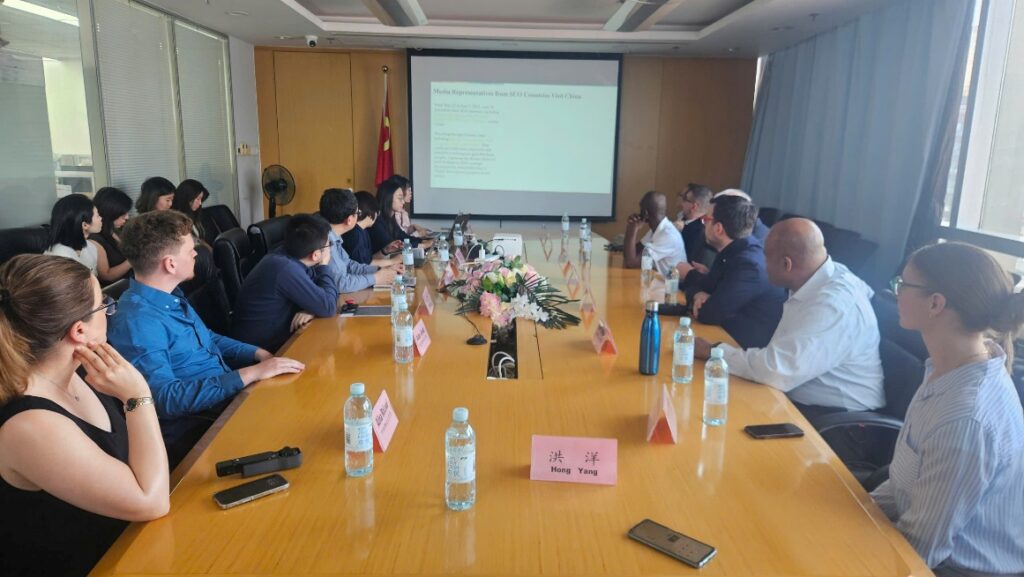
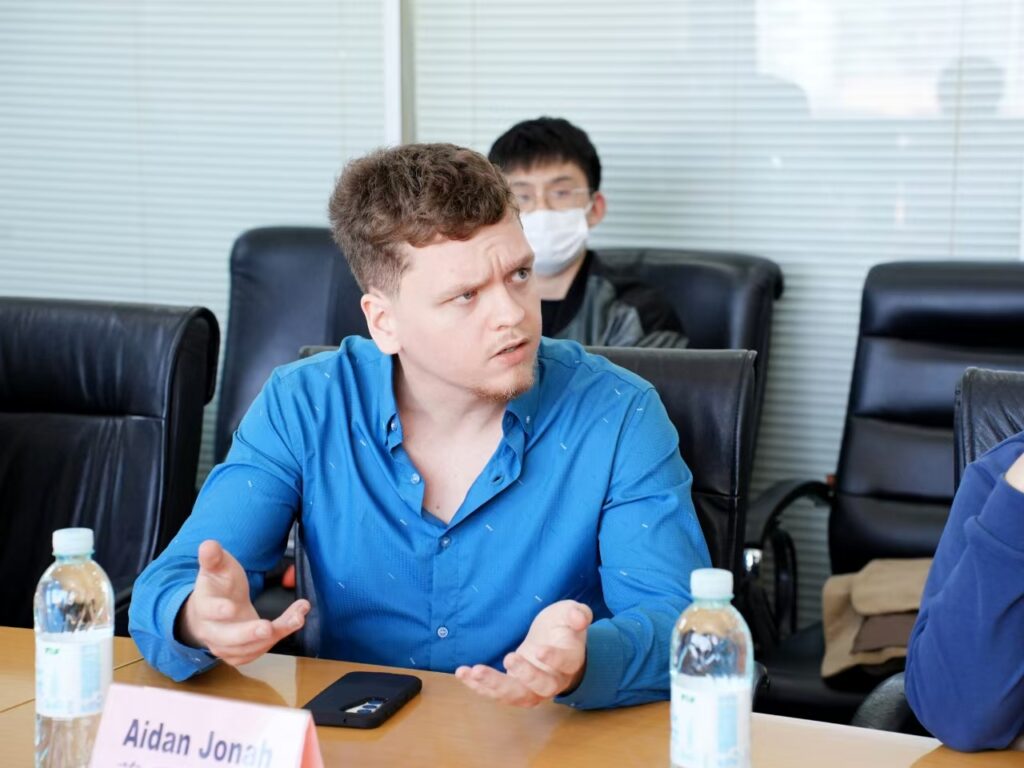
Tyrrell noted: “They responded that perhaps the next generation of social media—combined with the rise of AI translations—might help create a space where people across the world can connect more freely than we do now, given that we do not use the same social media platforms as the Chinese people.”
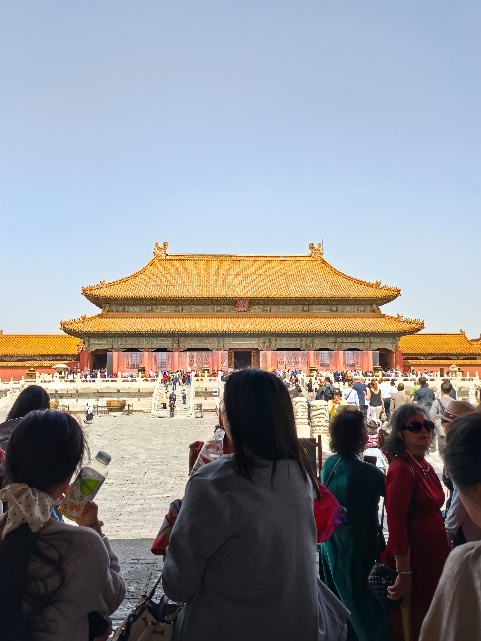
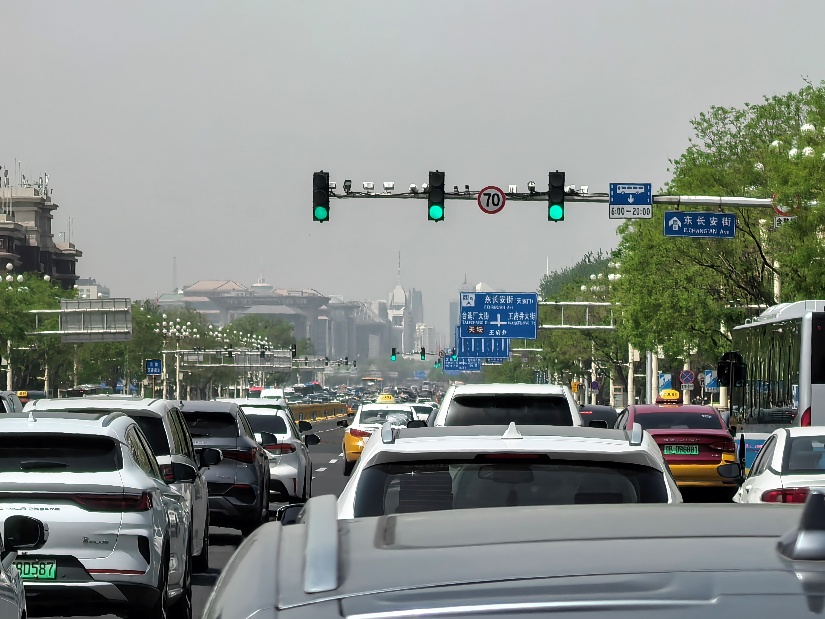
Afterwards we had lunch at the CPIFA with Zou Xiaoli— its vice president and former Chinese Ambassador to Argentina. Tyrrell noted that the Taiwan area was among topics discussed.
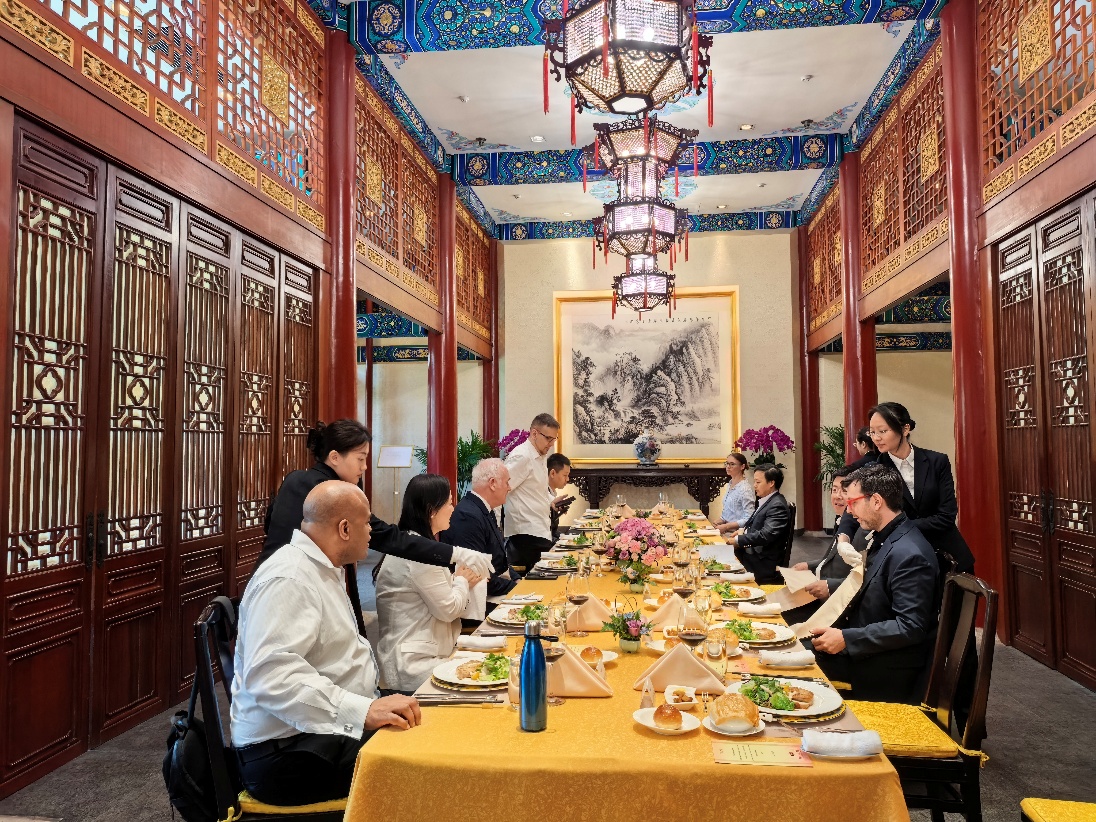
After lunch, a picture of me was taken standing next to a statue of Zhou Enlai, former Premier of the People’s Republic of China (PRC).
We then headed to the Chinese Foreign Ministry. There we met with Tang Zhiwen, Deputy Director of the Foreign Ministry’s Department of North American and Oceania Affairs. Tyrrell noted Zhiwen “emphasized that China seeks friendship, trade, and cooperation with Canada,” while the Two Michaels [Canadian citizens accused of espionage in China] and Canada’s foreign interference paranoia also came up.
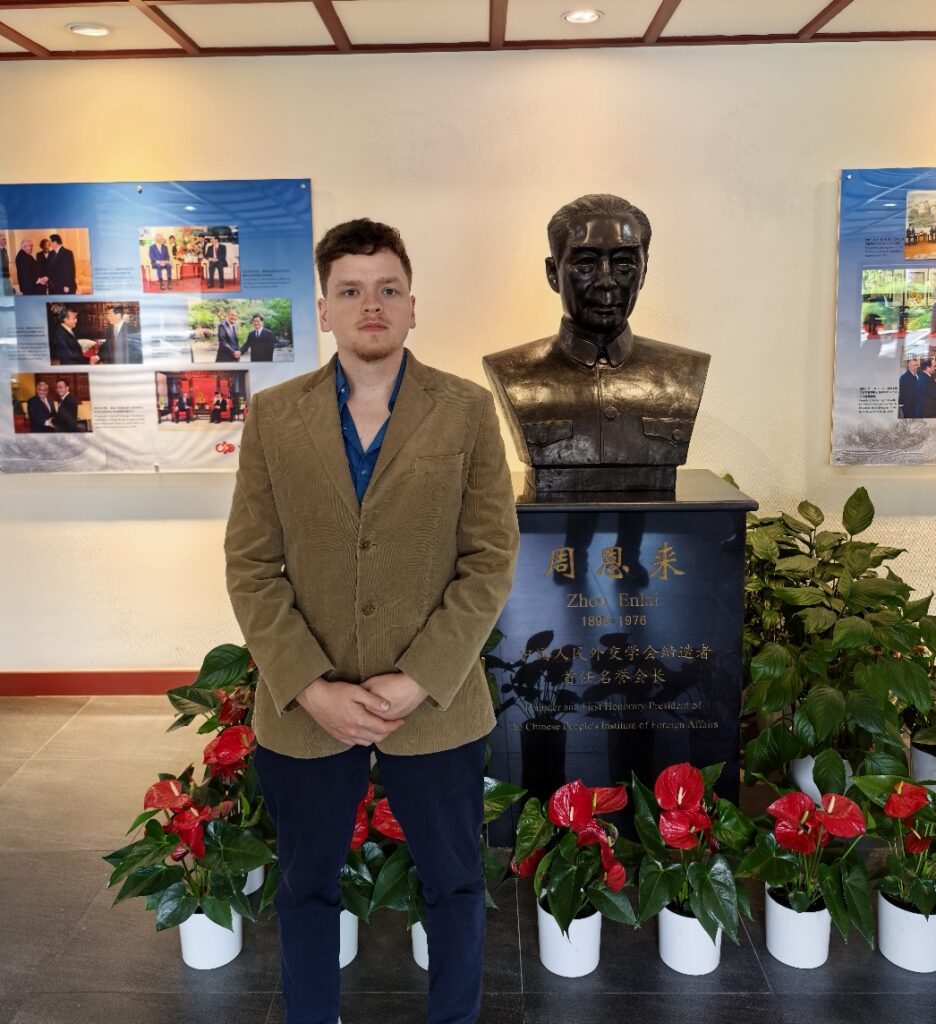
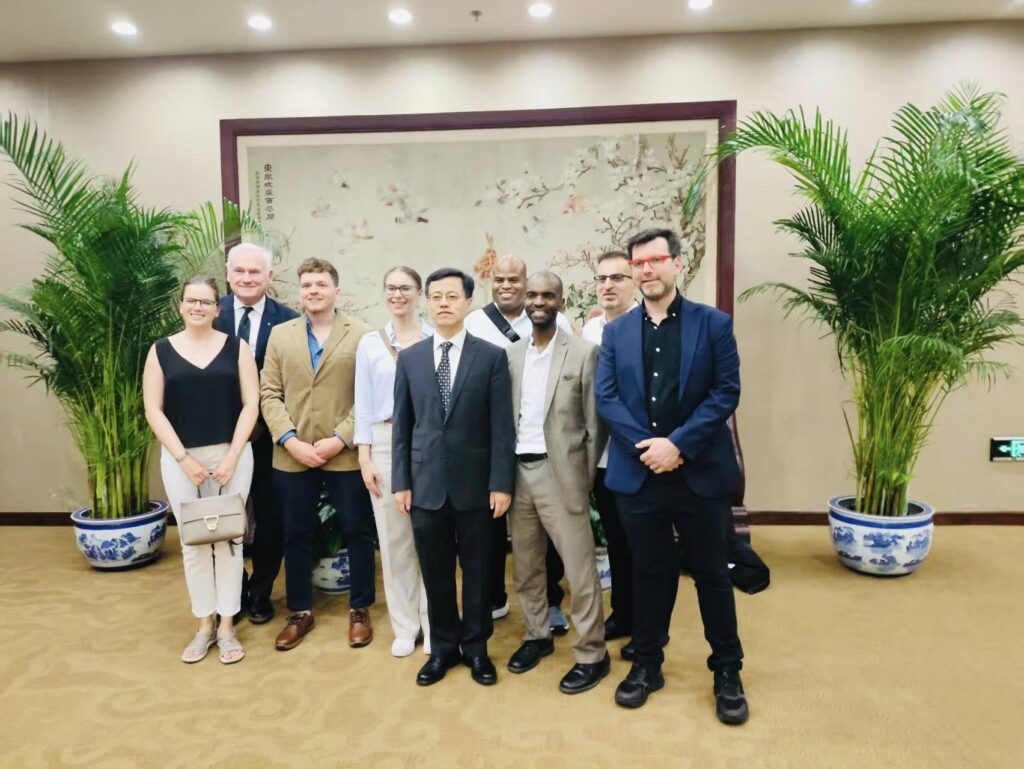
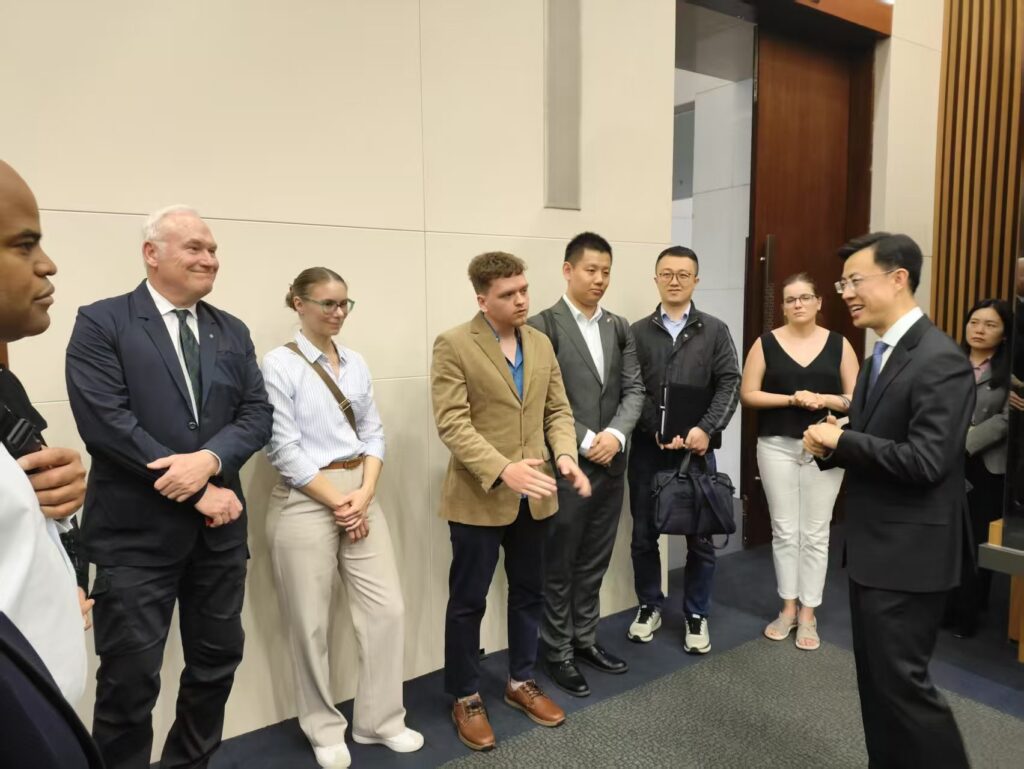
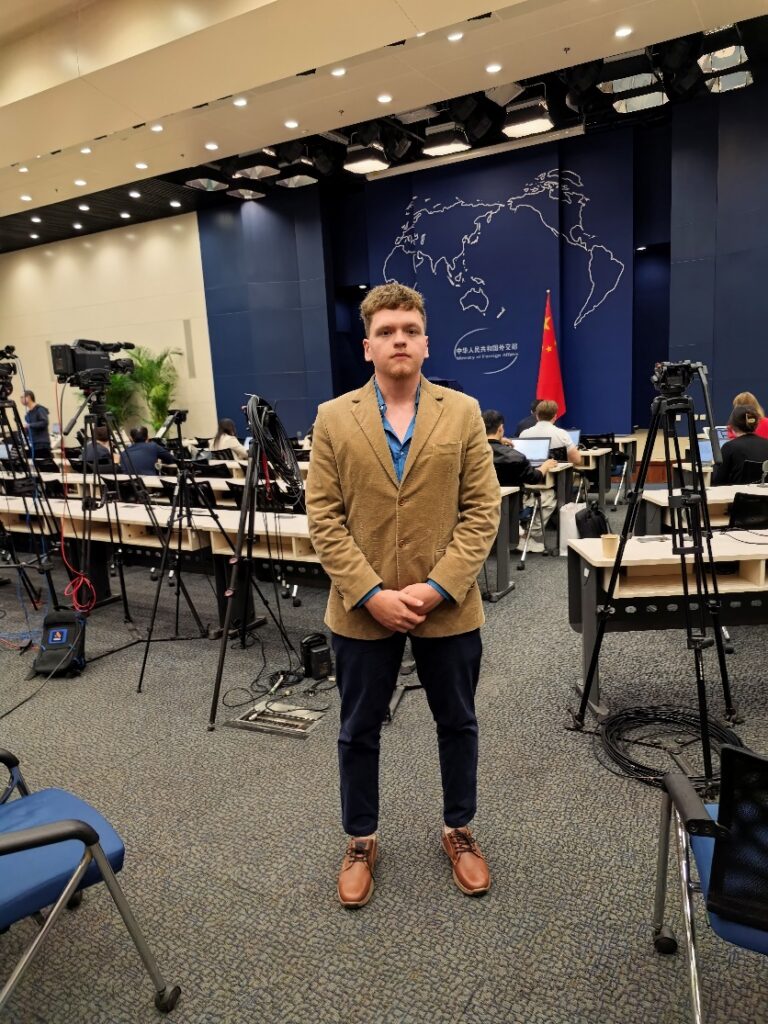
Afterwards, we headed to the media room, where we met Chinese Foreign Ministry spokesperson Guo Jiakun, just after a press conference had concluded.
Hangzhou
The star of the show for my generation was the museum of the Nanshan Campus of the Chinese Academy of Art. The museum housed a “Black Myth: Wukong” art exhibition, on the characters and story around “Journey to the West,” a famous 16th century Chinese novel by Wu Cheng’en that was made into a well-known television series released in 1986, which eventually became a hit video game in 2024.
I was aware of the game before visiting the museum but, after visiting the Nanshan campus itself, I found the opportunity to even play it on the big screen to be an especially enjoyable one.
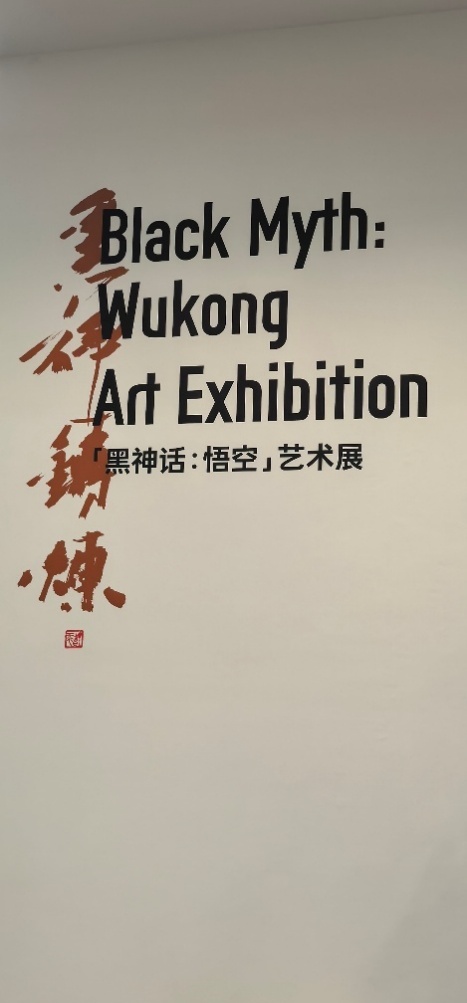
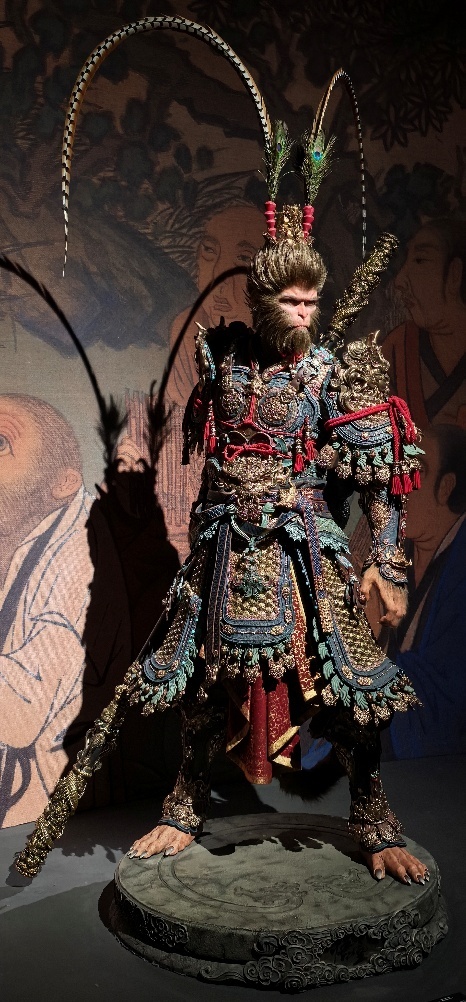
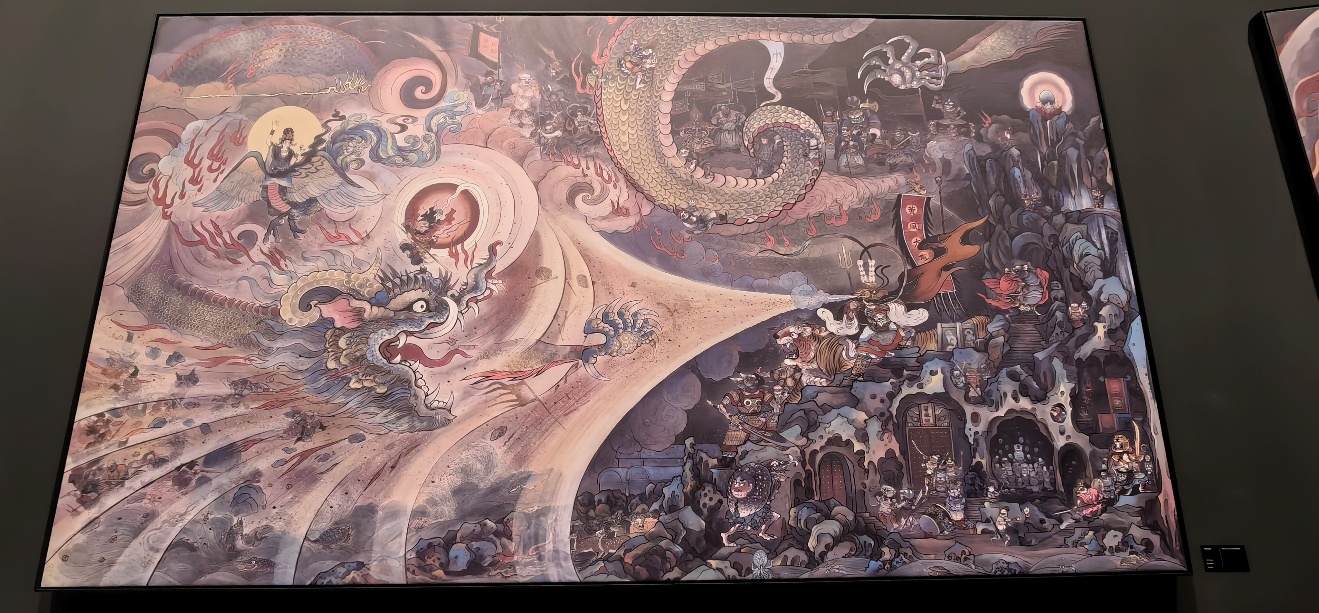
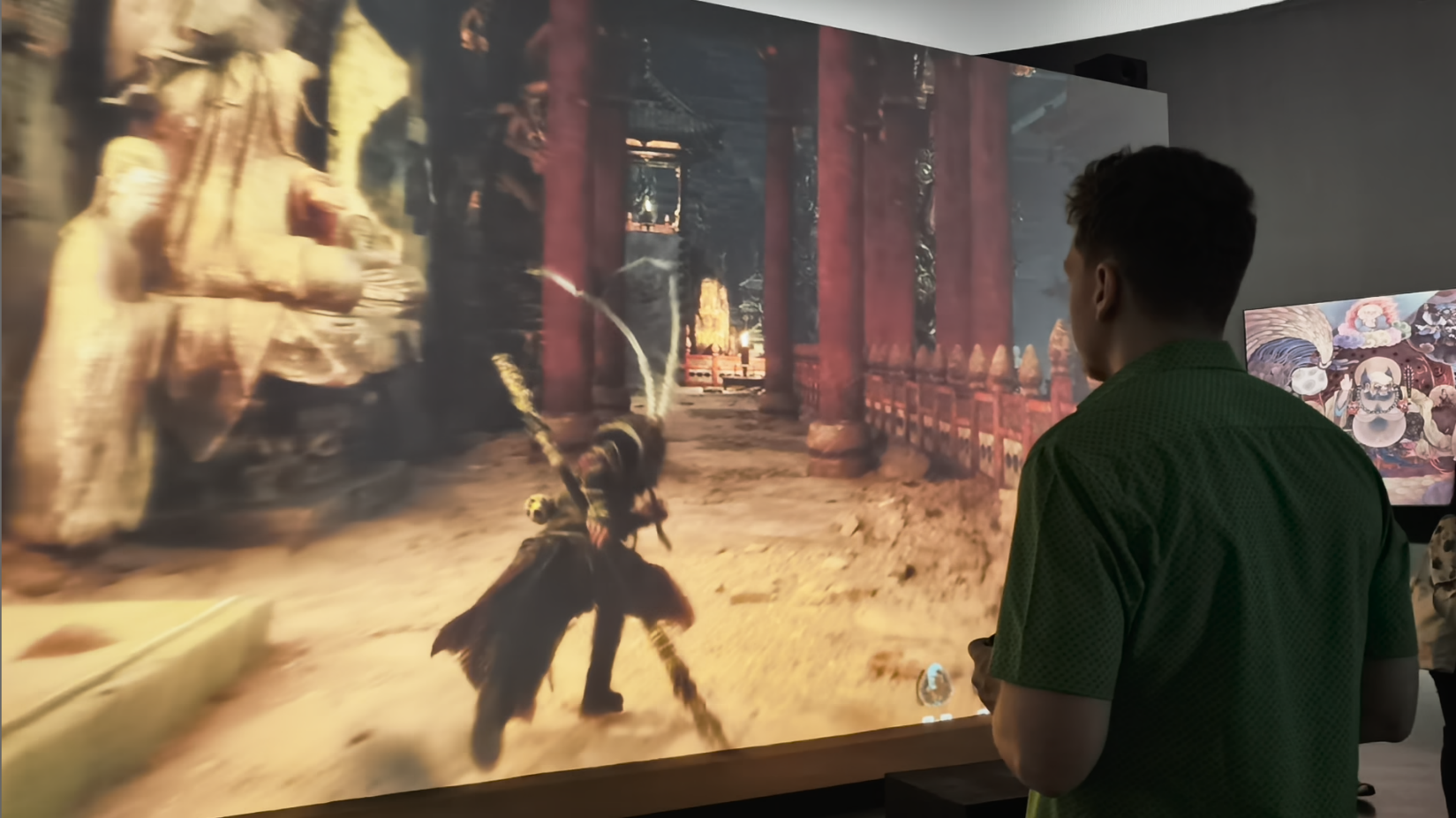
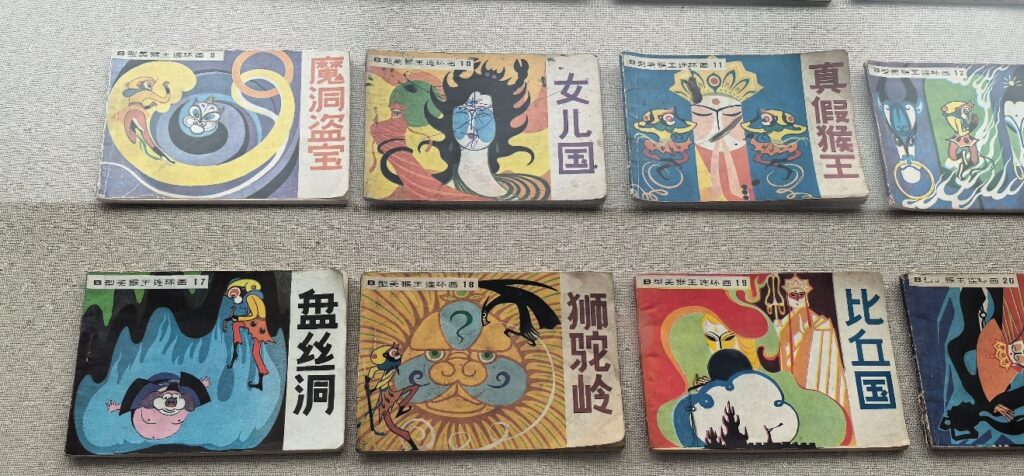
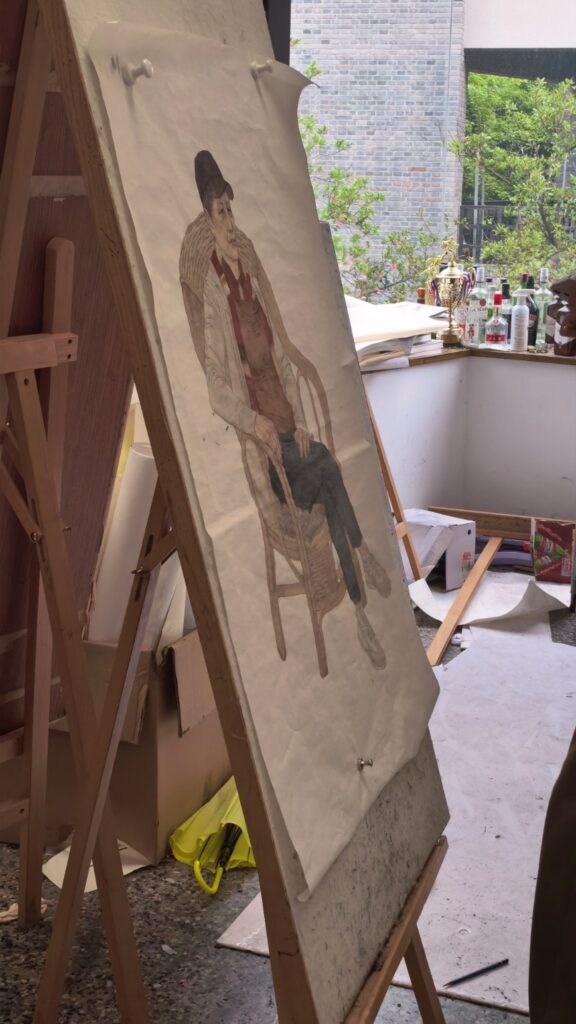
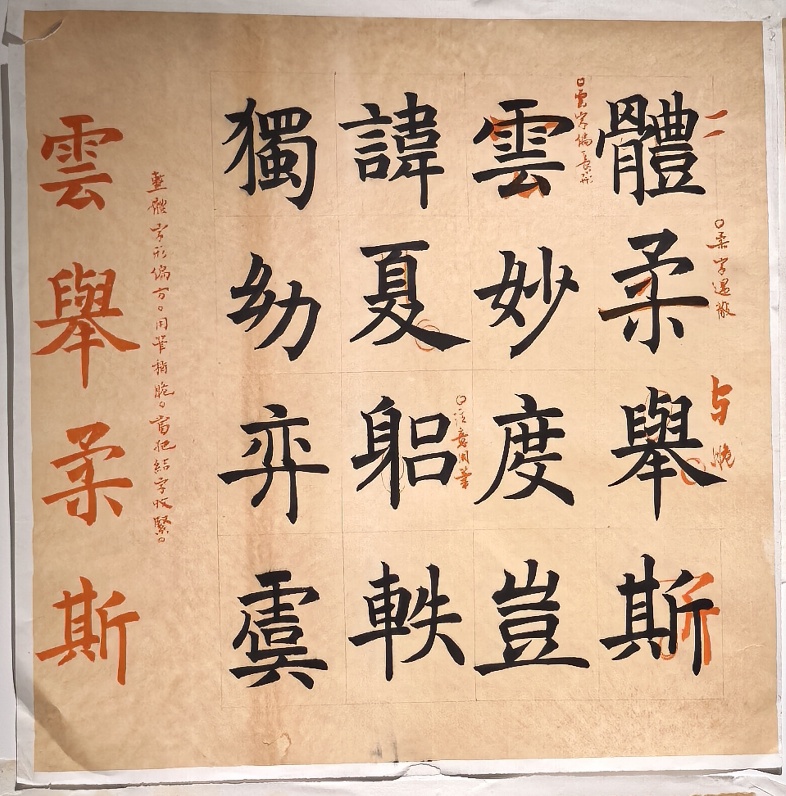
Just before, we saw the beautiful campus whose museum I enjoyed so much. We saw the dedication of art students and some of the beautiful art they had created.
Earlier, we visited Zhejiang Haikong Nanke Huatie Digital Intelligence and Technology Co., which Tyrrell noted “specializes in 50kg+ drones that are used in a wide variety of applications.”
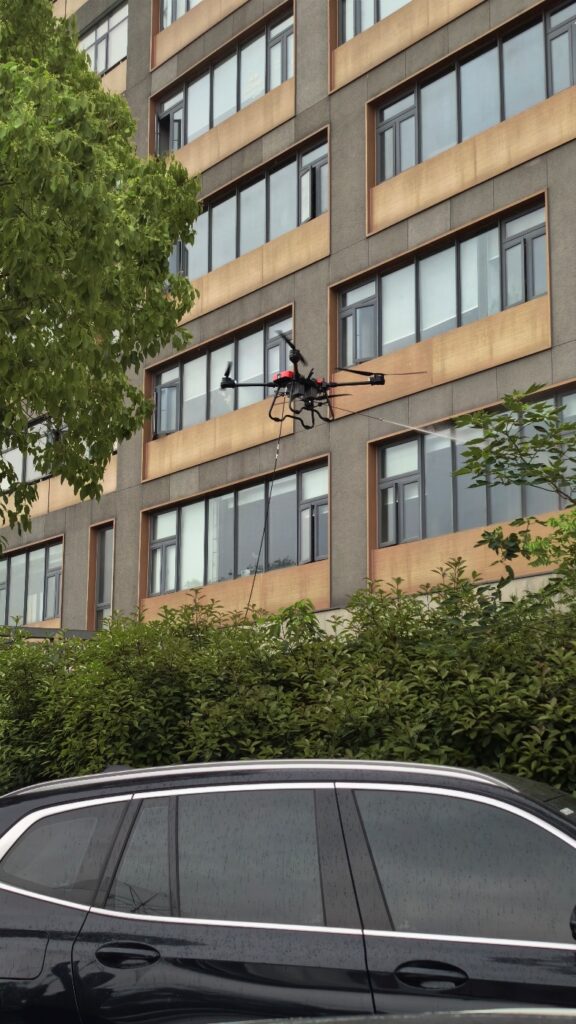
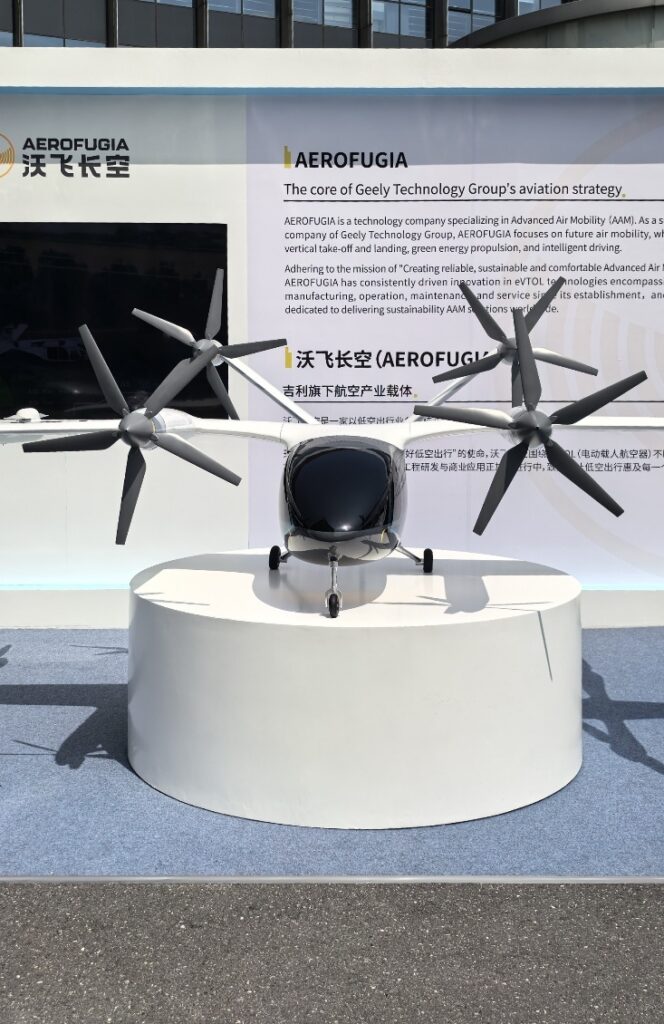
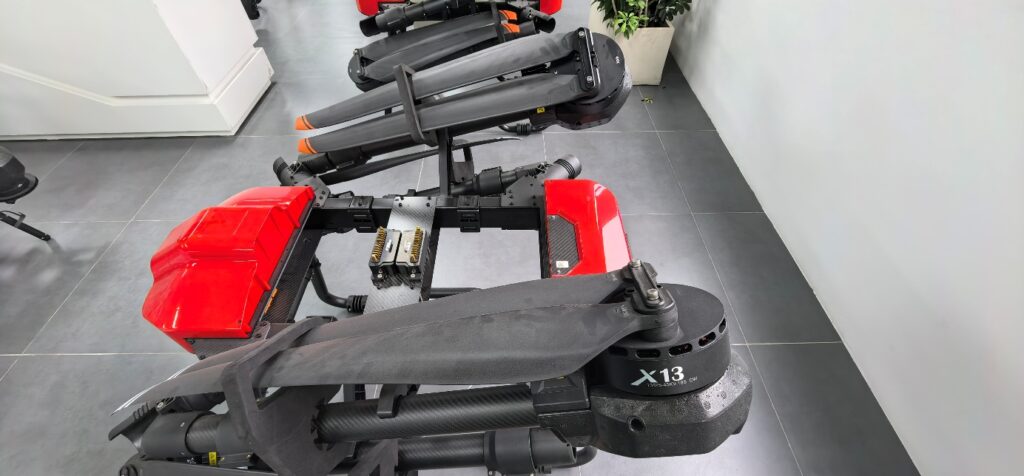
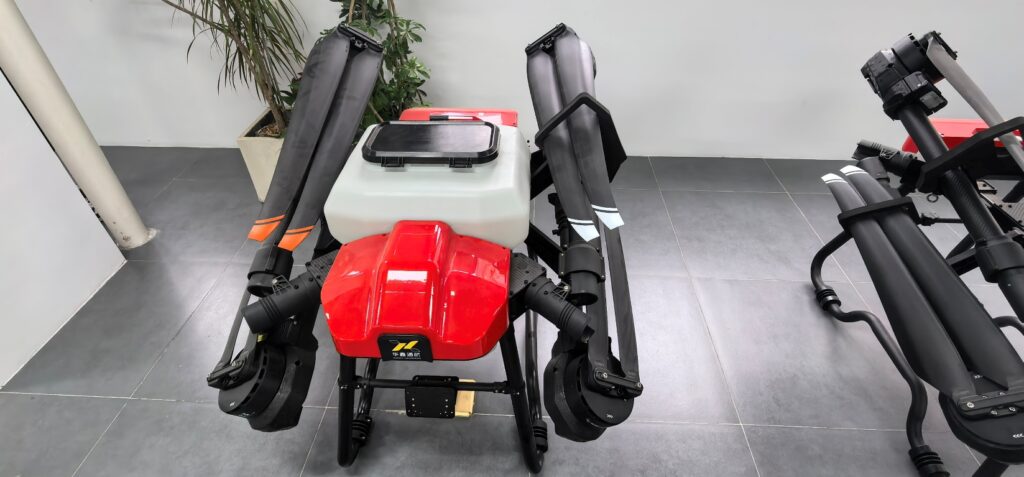
We continued to visit more companies including Geely Technology Group, which produced the eye-catching AE200 aircraft which the company says can carry up to six people while being useful for low-altitude tourism and transportation along with emergency rescue, with “green energy propulsion.”
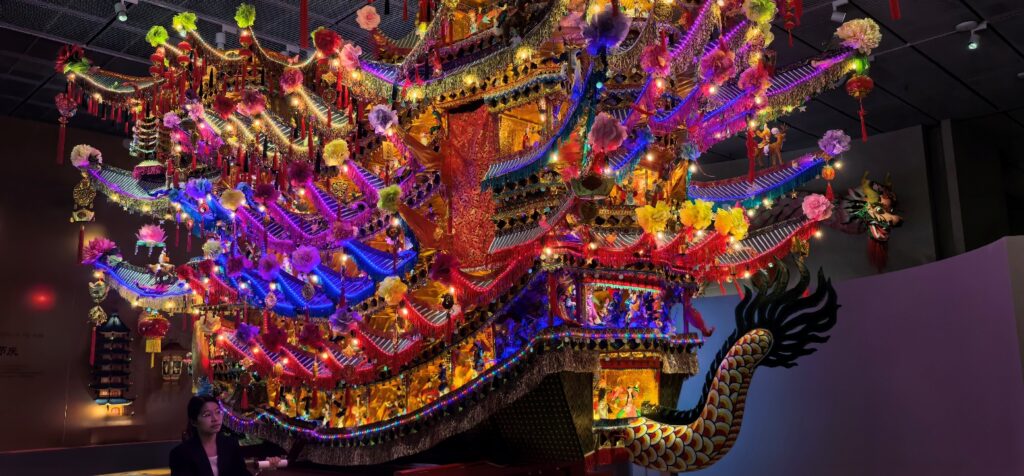
The Zhejiang Intangible Cultural Heritage Museum was a treat to visit and contained replicas of many historical objects.
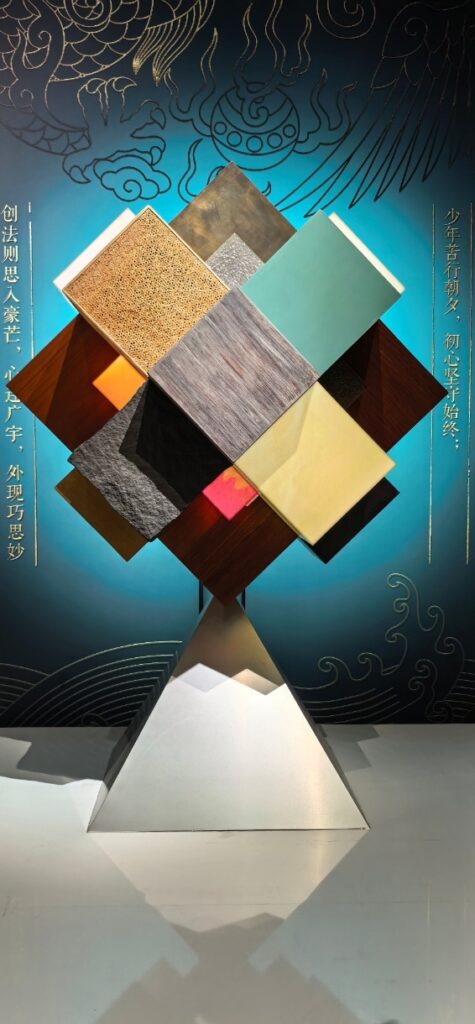
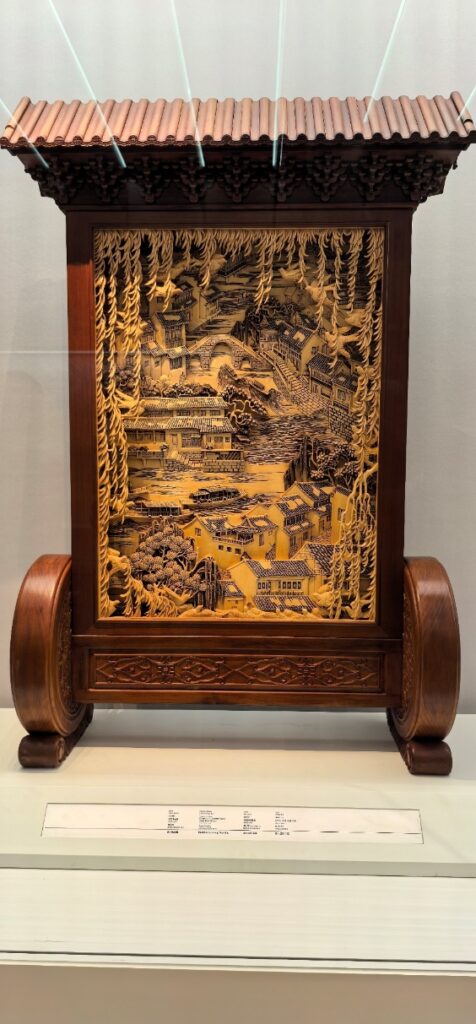
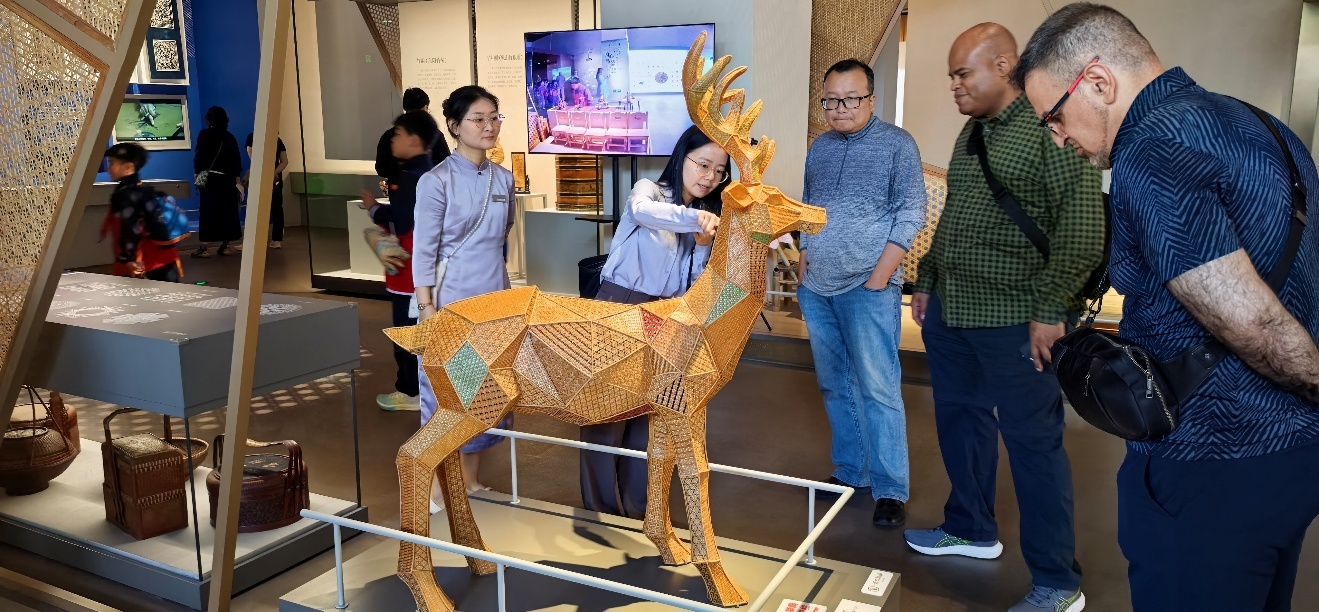
We would leave lively Hangzhou for a more laid-back destination, Qingdao.
Qingdao
Qingdao was formerly a German concession between 1898 to 1914 as the Qing Empire’s weakness led to multiple foreign countries having territory they managed within China’s borders. After the Republic of China was established in 1911, led by Sun Yat-sen, Qingdao fully returned to China’s government. After the PRC was established in 1949, and Chinese sovereignty over the mainland fully restored, Qingdao could grow into its current state over the following decades.
A fun start to our time in Qingdao was when we received a past-midnight food order (since work still needed to be completed while on the trip) from a cute little delivery robot.
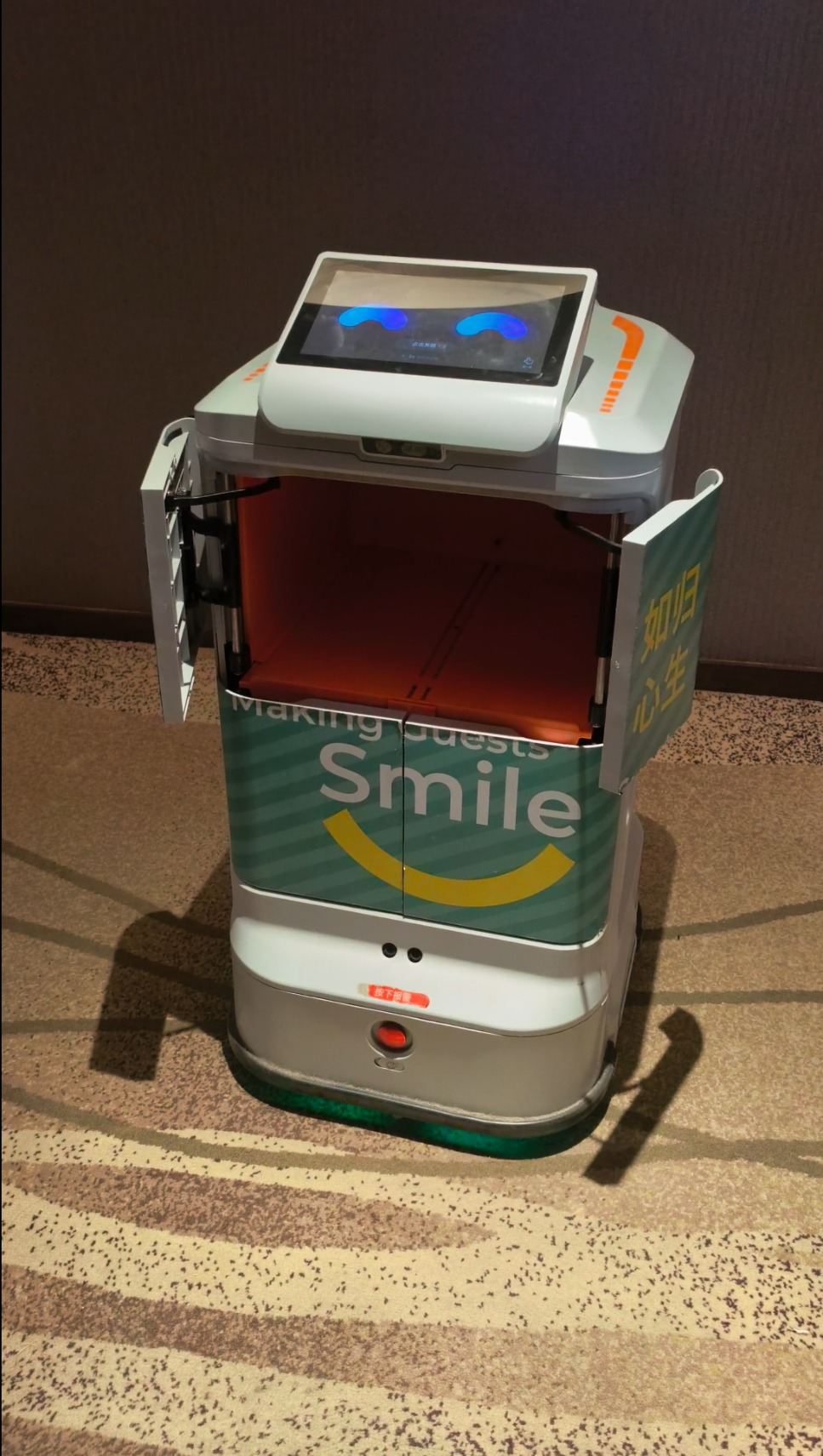
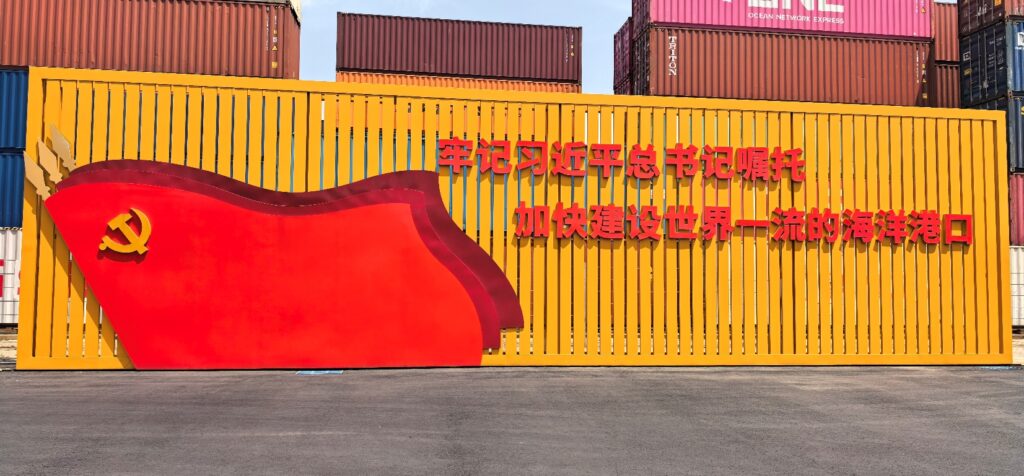
Soon we were visiting the Qingdao Port Automation Terminal, where half of the terminal (blue side) is run by computers, while the other half (red side) is still fully managed by humans.
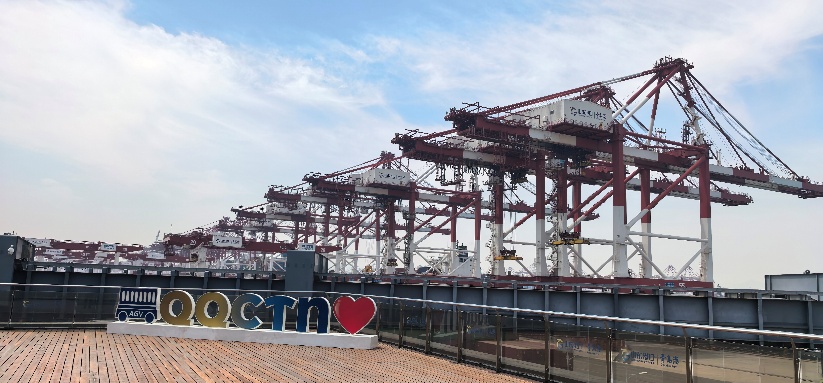
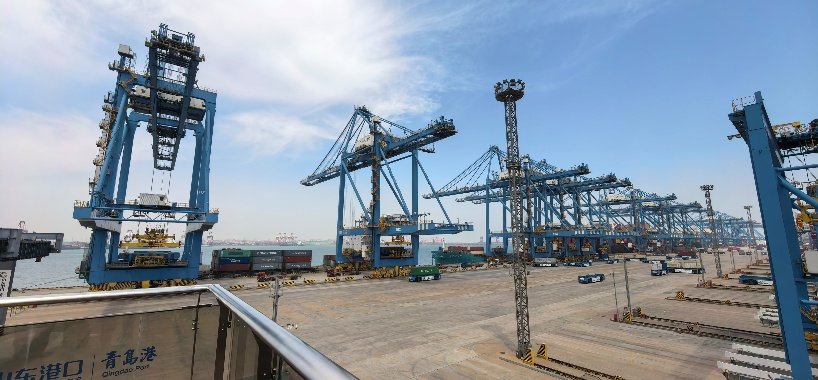
To get there, we crossed a bridge which, in 2011, was the longest one in the world at 31 kilometers.
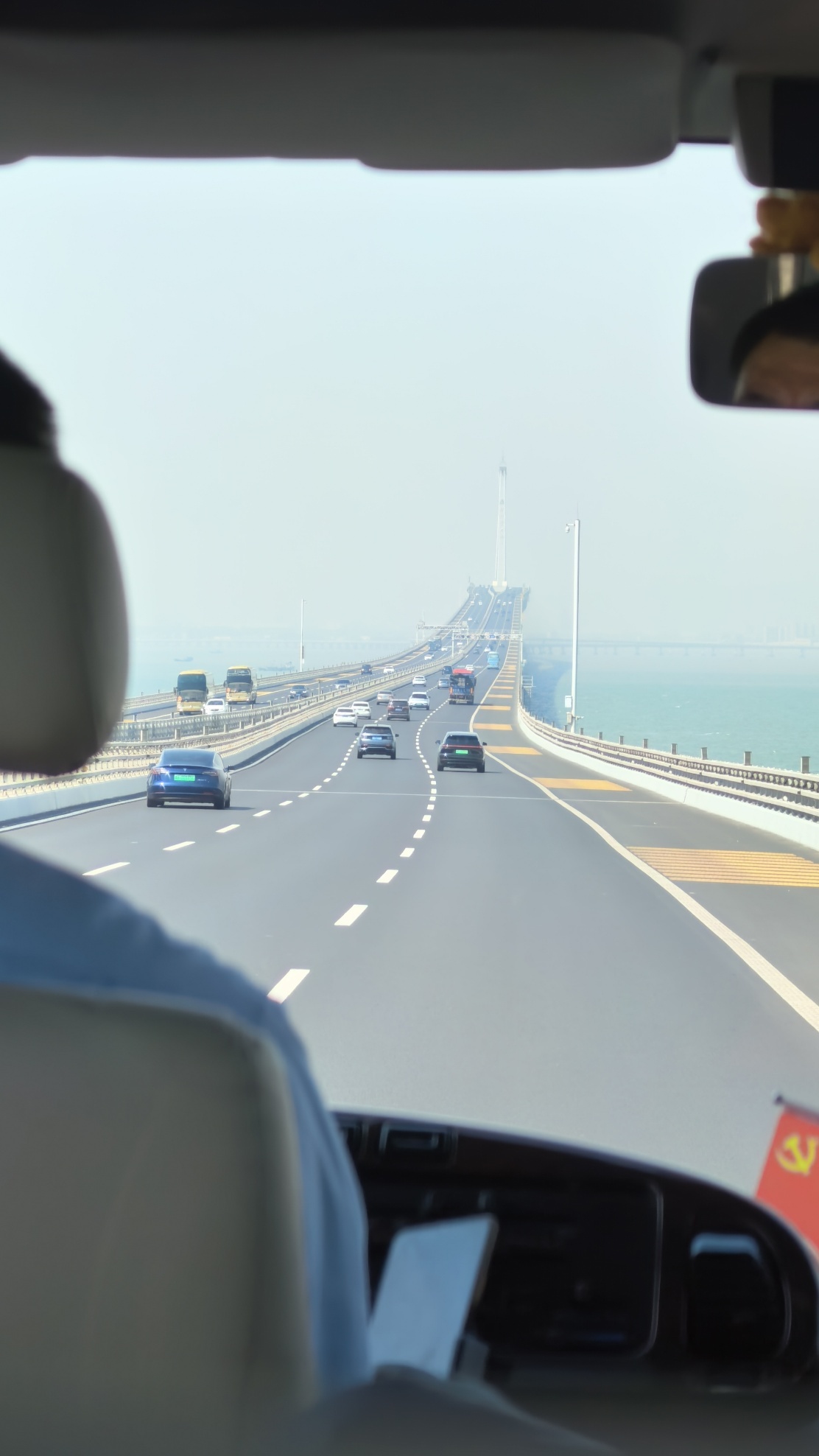
After seeing the Olympic torch from the 2008 Beijing Summer Olympics, we visited Haier, where I snapped a photo with a translation robot.
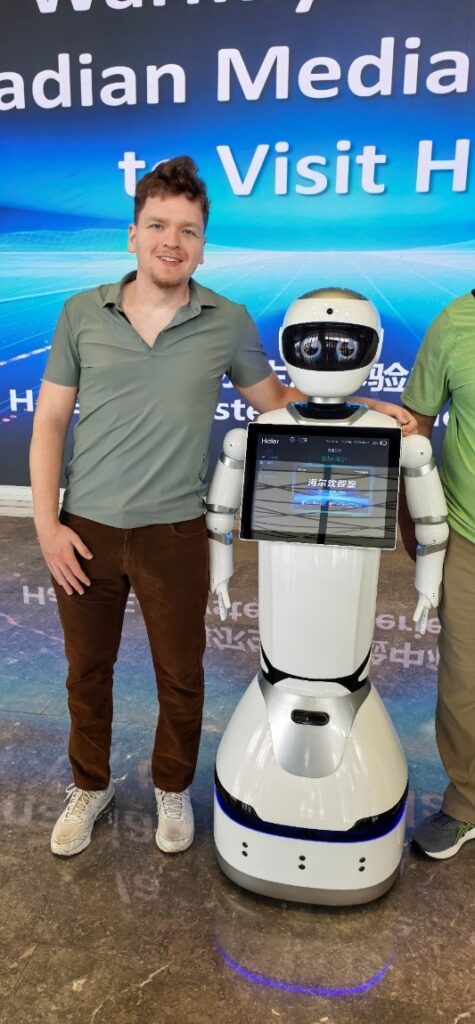
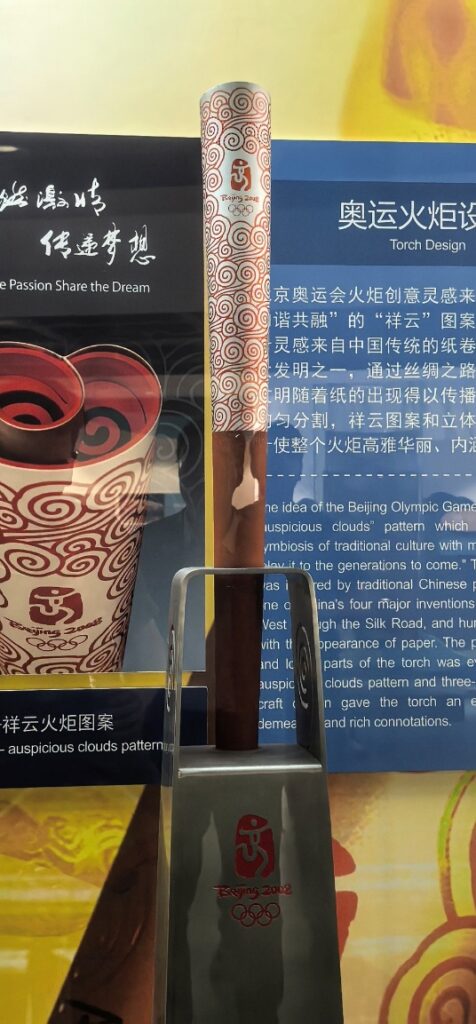
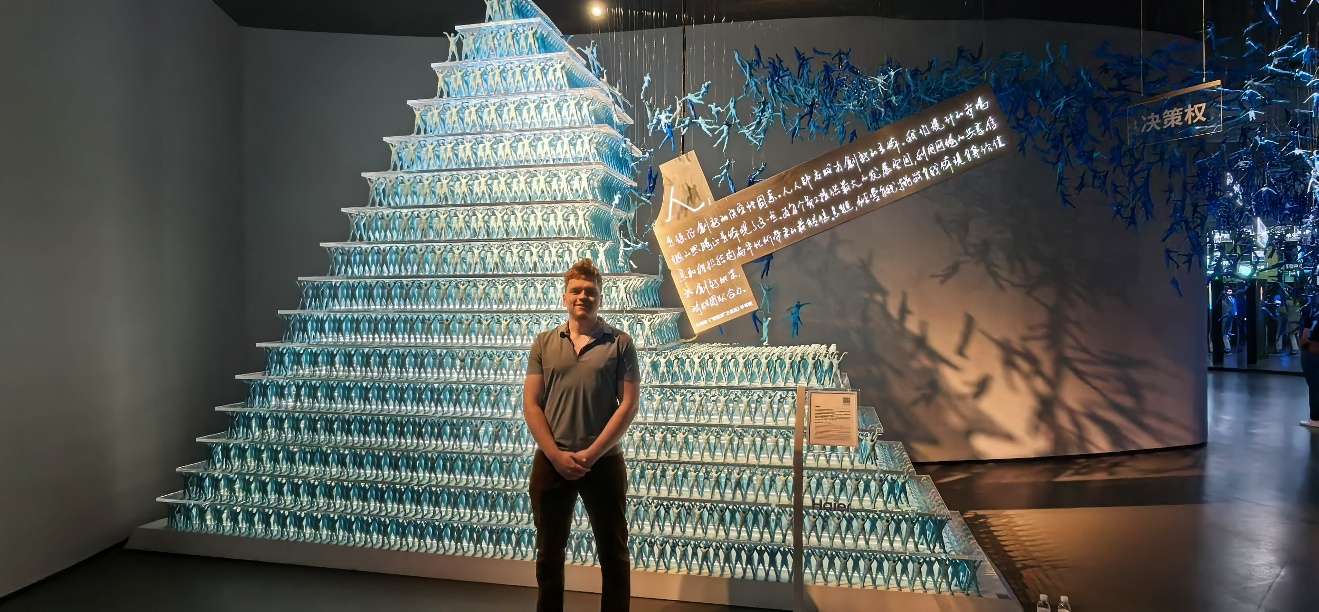
Soon afterwards, we visited the famous Qingdao Beer Museum, where we learned about the history of the Tsingtao Brewery Company and saw some of the processes that lead to the beer’s production.
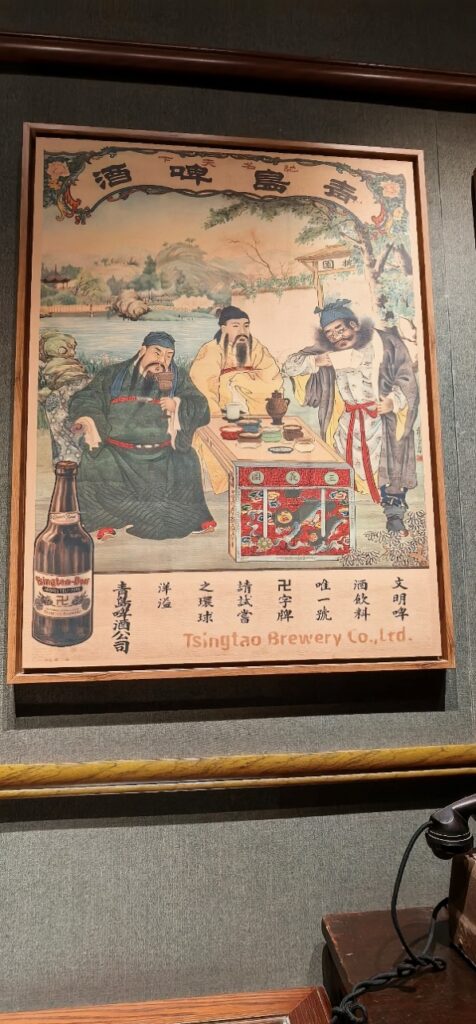
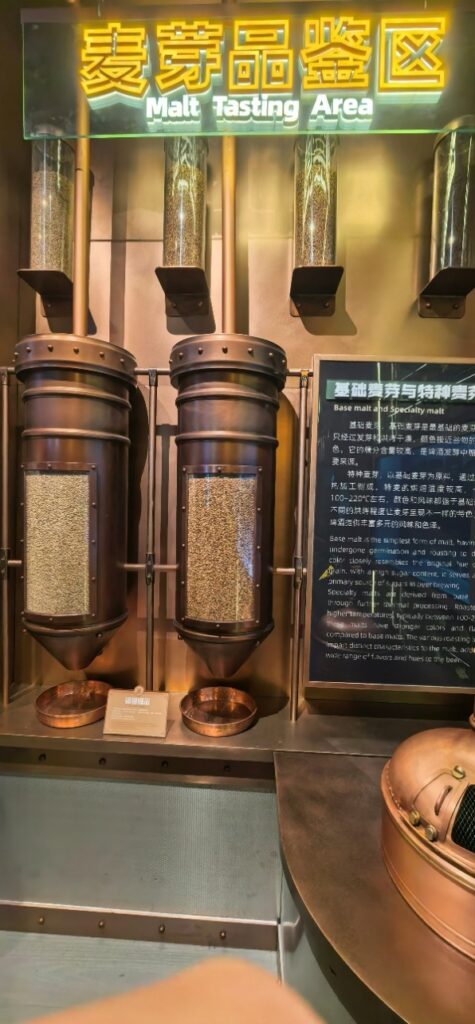
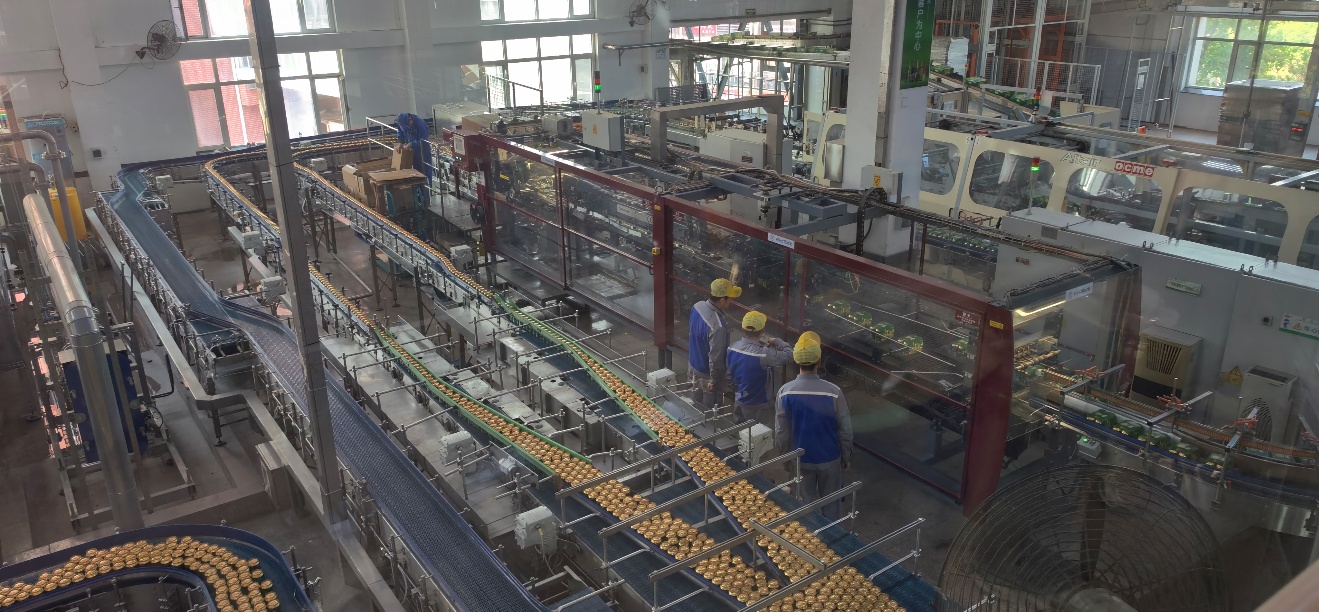
My favorite moment, however, may have been finding a statue of Colonel Sanders of the Kentucky Fried Chicken brand, and having some kind Chinese folks take a photo of the two of us.
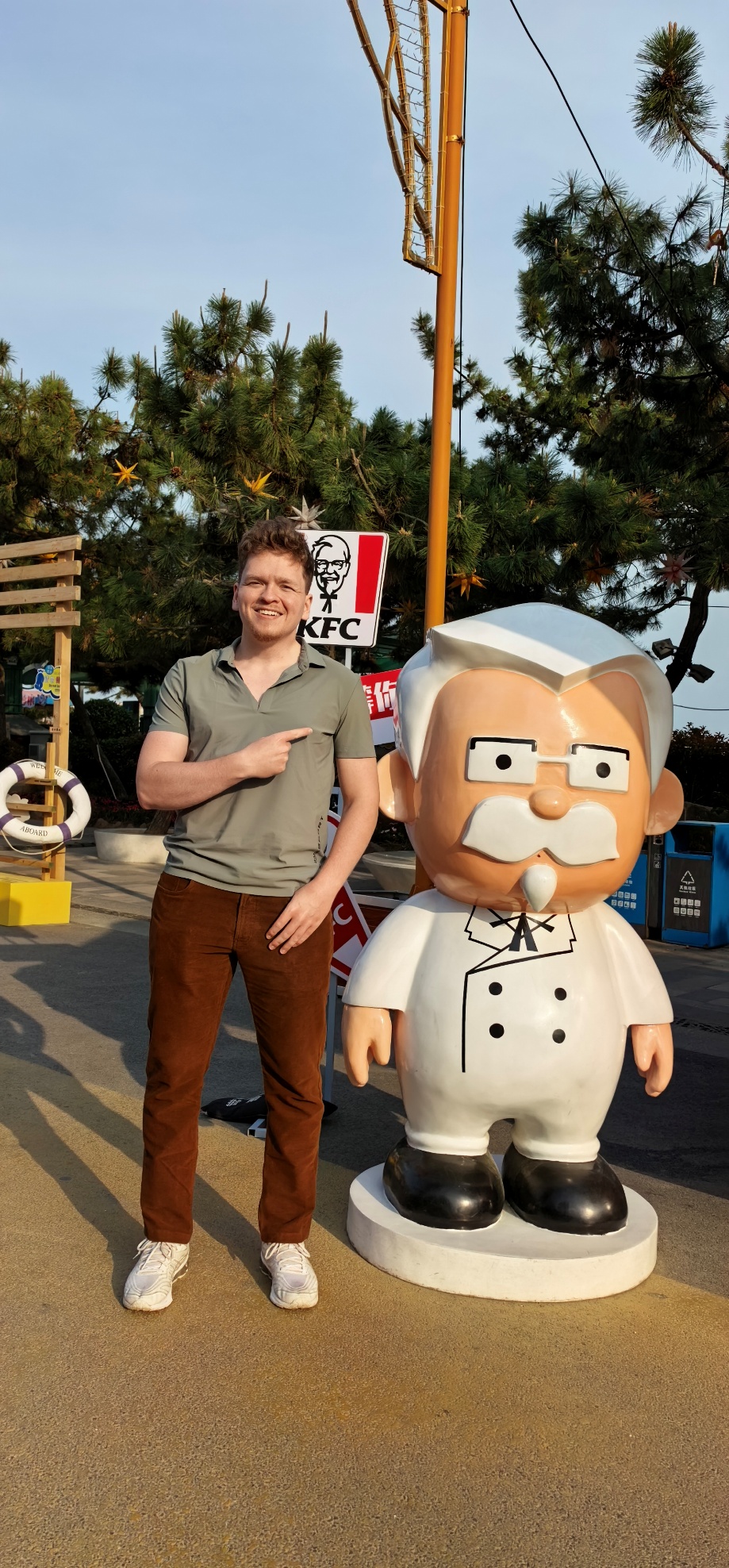
Afterwards, we visited a truly hidden gem in Qingdao, the Qingdao/Cuba Cultural Exchange Center. While some members of the tour bought Cuban cigars, I enjoyed the beautiful area within the center.[1]
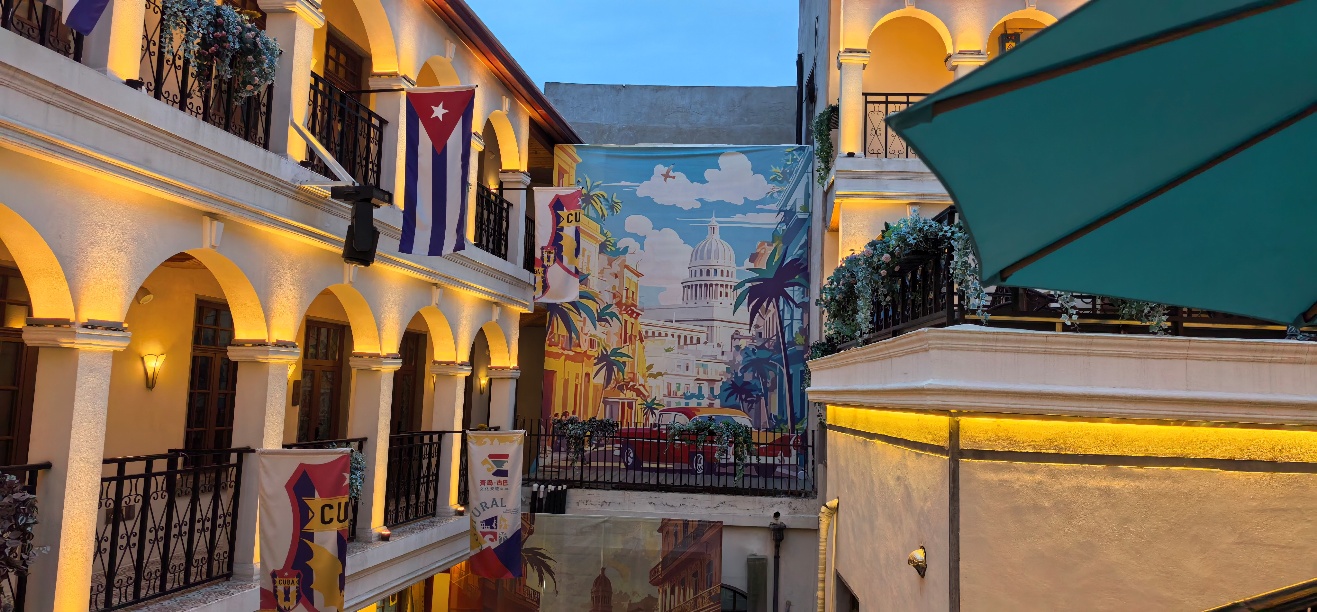
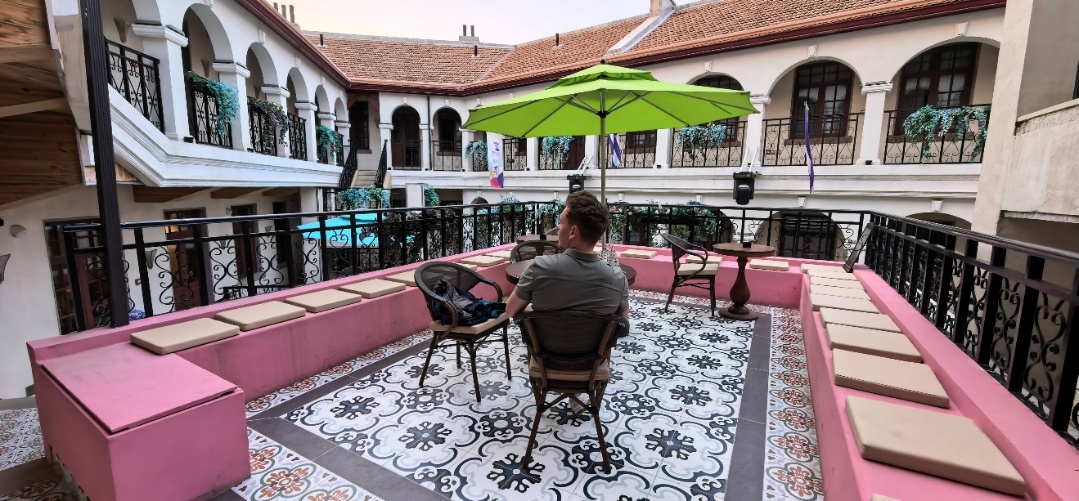
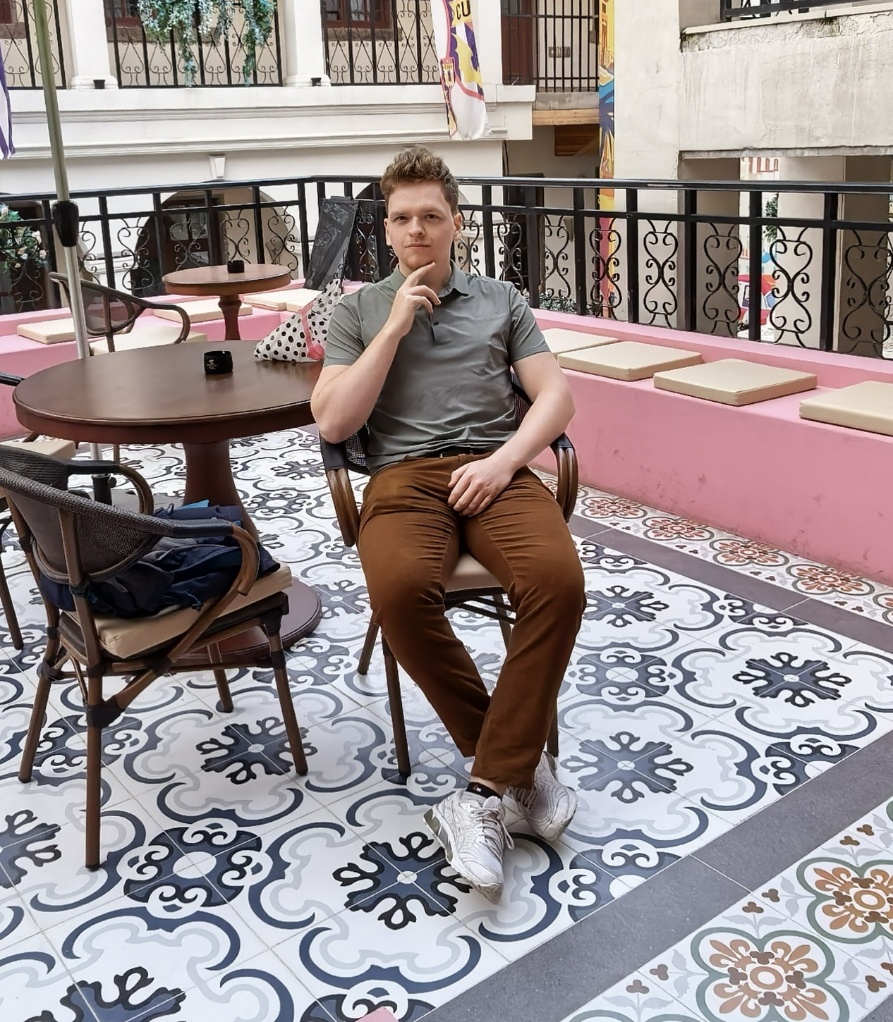
As the last night of the tour was winding down, I thought back to the many memories and fascinating Canadians who, except for Mr. Tyrrell, I was unaware of before we met in China.
I kept these memories in mind, even as the priority shifted back to day-to-day operations for The Canada Files and, as part of that, challenging the Canadian-state McCarthyism that prevents more Canadians from making vibrant China memories.
China does want win-win cooperation and increased trade with Canada; sadly, Canadian politicians (including those in government) have instead, in recent years:
- Joined the anti-China “Inter-Parliamentary Alliance on China,” designed to coordinate action against China
- Voted unanimously in 2021 to claim a “Uyghur genocide” was occurring in China
- Let a National Endowment for Democracy (NED)-funded group equate Xizang Autonomous Region (formerly known as the Tibet Autonomous Region) schools to Canadian residential schools, then unanimously voted “for a non-binding motion…that refers to Tibetans as ‘a people and a nation’ who should get self-determination”
- Quietly supported Taiwan separatism
- Supported Canada’s military joining in provocative naval missions in the South China Sea, along with the U.S.
Now, even in the mainstream media newspaper, Globe and Mail, there have been calls for China relations that are in Canada’s interests, instead of kowtowing to the U.S.’s ongoing anti-China campaign.
May there be an end to Canadian government servility to the U.S. in the coming years (instead of spending hundreds of billions annually by 2035 to please the warmongering NATO alliance), enabling development of strong Canada-China cooperation in the future.

“It would violate U.S. law for U.S. residents to bring back Cuban cigars purchased at the center.” ↑
CovertAction Magazine is made possible by subscriptions, orders and donations from readers like you.
Blow the Whistle on U.S. Imperialism
Click the whistle and donate
When you donate to CovertAction Magazine, you are supporting investigative journalism. Your contributions go directly to supporting the development, production, editing, and dissemination of the Magazine.
CovertAction Magazine does not receive corporate or government sponsorship. Yet, we hold a steadfast commitment to providing compensation for writers, editorial and technical support. Your support helps facilitate this compensation as well as increase the caliber of this work.
Please make a donation by clicking on the donate logo above and enter the amount and your credit or debit card information.
CovertAction Institute, Inc. (CAI) is a 501(c)(3) non-profit organization and your gift is tax-deductible for federal income purposes. CAI’s tax-exempt ID number is 87-2461683.
We sincerely thank you for your support.
Disclaimer: The contents of this article are the sole responsibility of the author(s). CovertAction Institute, Inc. (CAI), including its Board of Directors (BD), Editorial Board (EB), Advisory Board (AB), staff, volunteers and its projects (including CovertAction Magazine) are not responsible for any inaccurate or incorrect statement in this article. This article also does not necessarily represent the views the BD, the EB, the AB, staff, volunteers, or any members of its projects.
Differing viewpoints: CAM publishes articles with differing viewpoints in an effort to nurture vibrant debate and thoughtful critical analysis. Feel free to comment on the articles in the comment section and/or send your letters to the Editors, which we will publish in the Letters column.
Copyrighted Material: This web site may contain copyrighted material the use of which has not always been specifically authorized by the copyright owner. As a not-for-profit charitable organization incorporated in the State of New York, we are making such material available in an effort to advance the understanding of humanity’s problems and hopefully to help find solutions for those problems. We believe this constitutes a ‘fair use’ of any such copyrighted material as provided for in section 107 of the US Copyright Law. You can read more about ‘fair use’ and US Copyright Law at the Legal Information Institute of Cornell Law School.
Republishing: CovertAction Magazine (CAM) grants permission to cross-post CAM articles on not-for-profit community internet sites as long as the source is acknowledged together with a hyperlink to the original CovertAction Magazine article. Also, kindly let us know at info@CovertActionMagazine.com. For publication of CAM articles in print or other forms including commercial internet sites, contact: info@CovertActionMagazine.com.
By using this site, you agree to these terms above.
About the Author
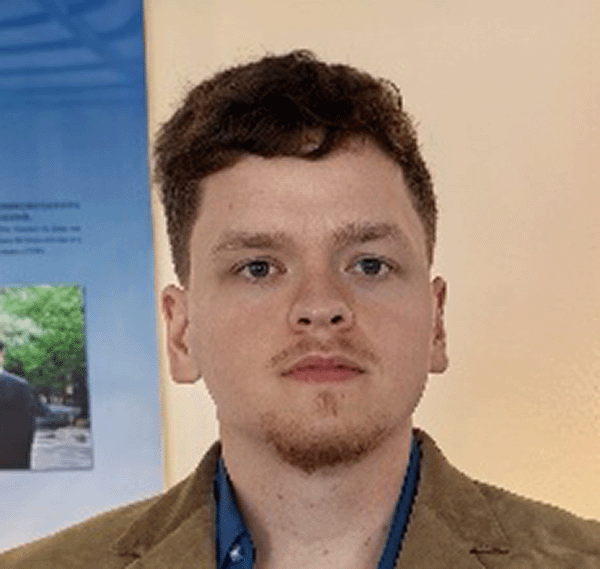
Aidan Jonah is the Editor-in-Chief of The Canada Files, an independent media group. Jonah wrote a report for the 48th session of the UN Human Rights Council, held in September 2021.
He can be reached at aidanjonah.canadafiles@gmail.com.

